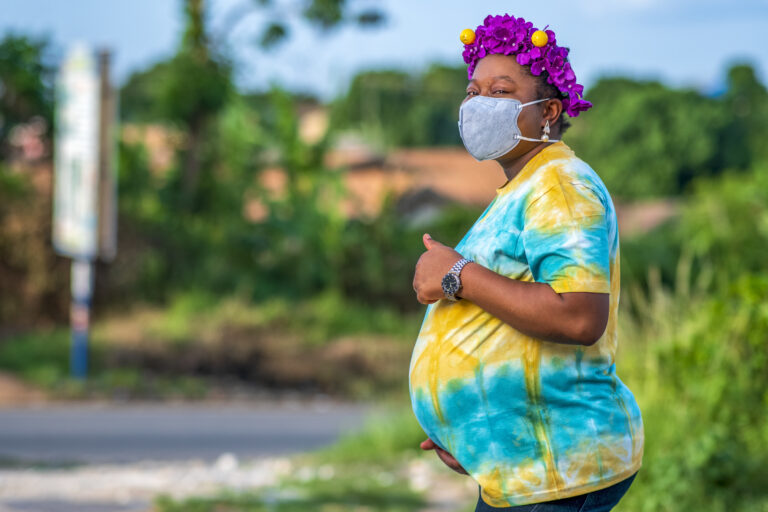The second surge of the COVID-19 pandemic has hit India hard. Within 4 days, from April 21 to April 23, 2021, India reported 12,87,901 new cases and 8999 deaths. The second surge is also resulting in increased hospitalisation with oxygen, ventilators and hospital beds falling short for the suffering patients. Moreover, one cannot ignore the considerable medical bills that patients are incurring if they are seeking treatments in private hospitals. In the face of high treatment costs, people are waking up to the importance of health insurance plans. Most people are looking for the ideal coverage for coronavirus.
 Image by azerbaijan_stockers on Freepik
Image by azerbaijan_stockers on Freepik
Which policy is, therefore, best amid this pandemic?
A health insurance policy has always been important to cover medical costs. If, however, you are looking for a policy due to the pandemic, here are some suggestions for you –
Case 1 – If you do not have a health insurance plan
If you are not insured under a health insurance policy, the first thing to do is buy one. All regular indemnity oriented health insurance plans cover COVID treatments. If you are hospitalised due to COVID, the medical bills incurred would be covered by the normal indemnity health insurance plan.
Benefits of an indemnity policy
- Covers COVID after a short waiting period of 15-30 days
- Covers other illnesses and injuries too that might result in hospitalisation
- The cost of hospitalisation, room rent, doctor’s fee, nurse’s fee, etc. are covered under the plan
- You can avail coverage for your entire family under a family floater coverage
- Lifelong renewability
- High sum insured levels
So, invest in a comprehensive health insurance policy for covering all instances of medical contingencies, including COVID. When buying a health plan, however, ensure that all your family members are covered under the policy and the sum insured is optimal. Since the medical costs are considerable, you need a high sum insured, at least Rs.5 lakhs or above, to be optimally insured.
If, however, affordability is an issue, you can opt for super top-up health insurance plans. These plans help in enhancing the coverage level at a low premium.
What you should ideally do?
- Buy a comprehensive indemnity policy + a super top-up plan
(A super top-up health plan pays for the additional claim, over and above the coverage offered by the indemnity health plan)
- Match the deductible of the super top-up plan with the sum insured of the indemnity plan. For example, if the sum insured under the indemnity policy is Rs.5 lakhs, the deductible under the super top-up plan should be Rs.5 lakhs and the sum insured can be Rs.5 lakhs or Rs.10 lakhs. Thus, in a claim, Rs.5 lakh would be paid by the indemnity policy and any excess claim would be paid by the super top-up policy.
- If you have dependent parents, buy separate floater coverage for them.
 Image by wirestock on Freepik
Image by wirestock on Freepik
Case 2 – If you have an existing health plan
If you have an existing health insurance plan, you can rest assured that any COVID related hospitalisation would be covered by the policy. However, you should check for two things –
- Whether all the family members are insured or not
If any family member is not insured, include the member in your floater coverage immediately. Health plans allow mid-term inclusions. Request the insurer for mid-term inclusion of the uninsured family member and pay the pro-rated premium for such inclusion. The member would be covered under the plan.
- Whether the sum insured is optimal or not
If the sum insured is low, increase the sum insured on renewal. Alternatively, for immediately enhancing the coverage, opt for a super top-up policy. The premiums would be low and the coverage would be enhanced. Like indemnity plans, super top-up plans would also cover COVID related claims after a short waiting period of 30 days.
Once you ensure all members are covered and that the sum insured is optimal, you can relax. Your policy would cover the hospitalisation costs incurred due to COVID or due to any other contingency covered by the plan.
The case of COVID-specific health insurance plans
Given the rising incidence of COVID in the first wave, the Insurance Regulatory and Development Authority of India (IRDAI) launched two COVID specific health plans – Corona Kavach and Corona Rakshak. Corona Kavach is an indemnity policy that pays for the actual medical costs covered. Corona Rakshak is a fixed benefit plan that pays a lump sum benefit if you are hospitalised for 72 hours or more due to COVID.
The benefits of both these plans are as follows –
- Affordable premiums
- A short waiting period of only 15 days
- Corona Kavach covers all medical costs, without any deductibles
- Covers PPE kit and other associated expenses
- No room rent capping under the Kavach policy
- The lump-sum benefit under Rakshak allows you to pay for other financial obligations too
However, these plans have their drawbacks too. They include the following –
- Coverage only for COVID
- The plans might not be renewable
- Short-term coverage
- Capping on the sum insured. The maximum coverage allowed is Rs.5 lakhs
 Image by tirachardz on Freepik
Image by tirachardz on Freepik
What should you do?
Though COVID cases are rising, investing in only a COVID specific policy, like Kavach or Rakshak, is not prudent. You would get a limited scope of coverage and other illnesses would not be covered. Remember, for hospitalisation due to other illnesses and injuries, the COVID specific plans would not pay a claim. Last year, between 1st April 2020 and 31st August 2020, insurers faced only 11% COVID related claims while the remaining 89% of the claims were due to other illnesses. So, if you suffer any other type of claim, the COVID specific plans would not come to your rescue.
However, for now, you can opt for a Covid-specific health plan OVER and ABOVE an indemnity health plan, so that your consumables, etc. is also covered for covid-related hospitalisation!
So, the ideal choice would be to invest in a comprehensive indemnity policy and supplement it with a super top-up health plan for a wider scope of coverage. The policy would cover all types of hospitalisations, whether due to COVID or otherwise. Moreover, lifelong renewals would allow you to stay insured even in your ripe old ages when illnesses become common and a health insurance plan is a must.
So, secure yourself under a health insurance plan for this pandemic and enjoy all-inclusive coverage.
Featured Image Credits: Image by rawpixel.com on Freepik





